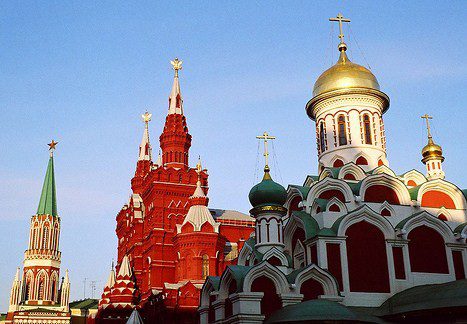
 A protest against Russian proposals to block websites deemed illegal has brought out the web’s big beast, after the bill was passed by the lower house of the country’s parliament.
A protest against Russian proposals to block websites deemed illegal has brought out the web’s big beast, after the bill was passed by the lower house of the country’s parliament.
The Duma passed bill 89417-6, in which the government proposed creating a blacklist of websites containing child porn, drug-related and extremist material and other content deemed illegal.
A protest had seen Wikipedia go black on Tuesday. And, on Thursday, Google’s Russia PR director Alla Zabrovskaya took to a company blog to say:
“We certainly support the intention of lawmakers to protect children online. However, we believe that the possible negative consequences of applying the law to exceed the expected positive effect, jeopardizing the user’s access to legal resources.”
Zabrovskaya said Google’s Blogger service is already entirely blocked in Russia thanks to an earlier court ruling that some posts on the site were extremist. And she said the whole of YouTube was blocked in 2010 when a court deemed a single video, which YouTube removed, extremist.
“Until now, these were isolated cases. But, with the new law, this practice may become the norm. Those who will suffer most are the Russian internet users who can not get access to legal content. We are convinced that there are better ways to combat illegal content than those offered in the law.”
The bill would create a registry of sites containing prohibited information, managed by a non-profit agency. The agency would ask hosts to advise publishers to remove the offending material. In the event they do not, the registry would compel hosts to restrict access themselves.
Free-speech advocates’ concern is understandable, given Russia’s sketchy record on the matter. Yet WSJ reports:
“Even prominent opposition lawmakers supported the bill, saying that the legislation actually represented a welcome step.
“Ilya Ponomarev, a usually outspoken anti-Kremlin critic, argued that Russia had become a ‘hotbed for cyber crime,’ after years without any laws regulating the Internet and that the bill was needed.
“He argued that the bill had been improved by removing the vague reference to “harmful content” when describing the type of sites that could be targeted.”
The bill is read by the Duma for a second time on Friday before heading to the upper house. It would then be signed by President Putin.